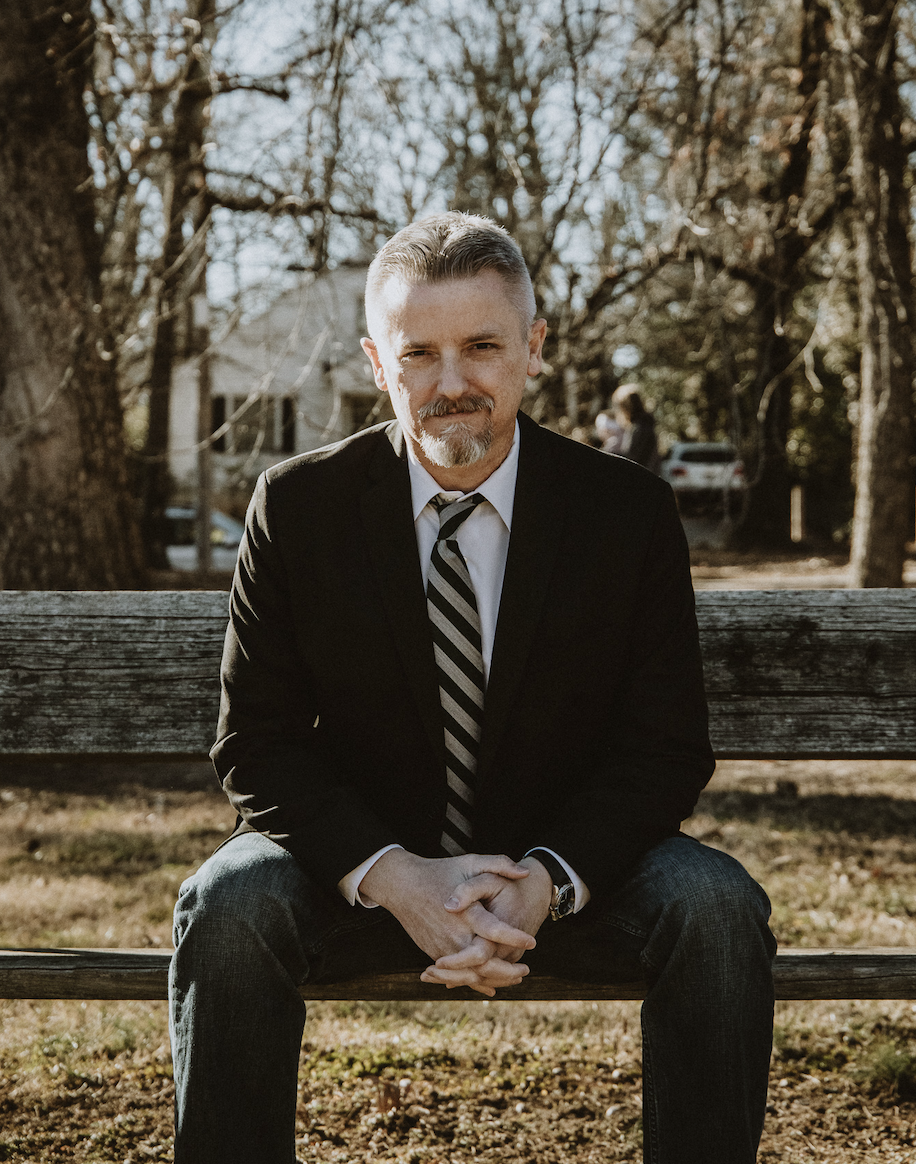Ed Southern’s Fight Songs is a book of remarkable depth that defies the boundaries of genre at every turn. It’s a deeply personal memoir, an enthralling history, and an act of social conscience. It is, quite simply, one of the best sports books I have ever read.
The author is, well, as southern as they come. I’m a Michigander, but have lived in North Carolina long enough to recognize a real one. My interview with Ed Southern was open and wide-ranging and every time I tried to pin him into a corner, he kept pushing further into all the complications that make the south so interesting. And so goddamn frustrating.
We talked about Bear Bryant, Nikole Hannah-Jones, Coach K, the rebel flag, Roy Williams, and the utopia once promised to a young Ed Southern by Burt Reynolds himself. I could have talked with Ed Southern forever about sports and culture and the south, and if you get a chance to see him on tour, I strongly encourage you to take advantage.
__________________________________________
Travis Mulhauser: One thing I really admired about Fight Songs was the depth of the thought, research and feeling…how thorough it all is. “Complicated” is in the title and I think your willingness to tackle complexity, and to avoid simple, reductive “hot takes” is one of the book’s defining features. This is not a book for Skip Bayless and we can all be grateful for that.What did you learn, about yourself and/or the south, that most surprised you while writing Fight Songs?
Ed Southern: I have a hard time, now, separating what I learned from what I articulated: what I’d known since childhood but never examined enough to put into words…football players clucking like a chicken at my grandfather, because he was going to go lay brick after school to support his family instead of going out for football. That, more than the story itself, shows what a grip football has on the culture and on our psyches. For most of my life I’d just accepted that football players would harass an able-bodied boy who didn’t want to play.
In the same vein, I’d just assumed or absorbed – I think since childhood – that the South was an especially violent, aggressive region of a violent, aggressive country. I remember some of my early trips to New York City, and seeing and hearing the loud confrontations that are stereotypical of the city (“Hey, asshole, move your car!”), and thinking how you could not do that in the South because at the very least you’d be getting in fist fights over and over again. That old, perverse honor culture is so deeply ingrained, and it’s absolutely true that our fabled “good manners” are a veneer to try to keep our inner violence in some kind of check. Even now, even knowing better – at least in my superficial, rational mind – I don’t know that I could let a direct insult pass and just go on about my day.
And, of course, that violence is intimately entwined with our history of conquest and enslavement. Again, I think I’d long suspected or assumed that, but everything I read researching Fight Songs seemed to bear that out. A white man in the South had to be ready, willing, and able to help fight the natives or put down a slave revolt; they had to serve in the county militia and the slave patrols. In time that imperative transferred to sports, especially football.
I did learn that the ACC was founded for football, not basketball. That was a surprise. I learned that football’s militaristic trappings began very soon after the sport itself did, and began in the Northeast, in the Ivy League, just as the sport itself did. If Southerners took to football as a way to re-fight the Civil War, it’s because Northern elites had spent forty years equating football with war.
Mulhauser: You are both a withering critic of the south, and reluctantly hopeful about its future. You’ve spent your whole life here, and I’m wondering about the distance between the south we live in, and the one your book suggests still might still be possible. I’m curious about where that dichotomy comes from, and how frustrated you are by it?
Southern: I blame Burt Reynolds. If you go back and watch the movies from his heyday in the ’70s, when he was the biggest star in the country, he makes a point of showing that his heroes are non-racist, even anti-racist. White Lightning, Gator, The Longest Yard, Smokey and the Bandit: the bad guys are always explicitly racist white patriarchal authority figures. White working-class protagonists find and make common cause with Blacks, like a cinematic Fusion Party with muscle cars.
That became sort of my baseline mindset, and I really thought it was our future. I don’t want to overstate that sort of hick progressivism – or my own, since Lord knows I’m still trying to work on a lot of my own assumptions and habits of mind. I also don’t want to understate the real progress I’ve seen in my lifetime…
Still, though, we keep seeing so many failures of reason and of empathy, so many failures of community…they frustrate me, and break my heart. My own repeated failures to reckon on these failures frustrates me. The repeated failures of us “nice white folks” to stand up to these failures frustrates me.
Mulhauser: You have a great line in the book, where you expand on the historian, Wayne Flynt’s assertion that the south loves football because of its long history of “not being afraid.”. You say, instead “…what if the South loves football, as well, because of a long history of being very afraid?”
Can you talk a little bit about that fear?
Southern: Once you take an honest look at the South’s history..once you learn about how the slave codes developed in early Virginia, and how high the mortality rate was, and how close the remaining Natives came to wiping out the English settlers in 1622 and 1644; once you learn how ineffective the militias were against the British, no matter what the myths of the Revolution say; once you learn the extent to which land speculators and magnates dominated the white settlement of the South, and how rigged and exploitative was the economy they created; once you read the first-hand accounts of the many slave uprisings and how terrified the white settlers remained of their possibility; once you read beyond the myths about Appomattox and Reconstruction and Redemption and the Great Depression and on and on — you see just how much Southerners have had to be afraid of, and for how long.
So Wayne Flynt is absolutely right that the physical demands of football were nothing to a bunch of farm boys who’d grown up working their asses off beneath the broiling sun. I think of my grandfather saying football was his “vacation” from laying brick and concrete block. But Bear Bryant himself said, repeatedly, that he clung to football because he was terrified of ending up back on a dirt farm in Moro Bottom, Arkansas.
That much, at least, is true of the Rust Belt, too. Joe Namath said in an interview that once in high school he’d been blowing off football practice, so someone – I can’t remember if it was his father or a coach – took him into the local steel mill to show him what his life would be if he gave up football.
In the South, though, I think you have the added element of a 400-year-old siege mentality. With all respect to Nikole Hannah-Jones, that mentality didn’t start with 1619… In short, people without fear aren’t as quick to fight, or to take offense, as most Southerners are.
Mulhauser: I feel viscerally angry and embarrassed every time I see a confederate flag. What do you do when you get that feeling? I just don’t even know how to handle it, and it’s not just about the south, of course. There are a lot of confederate flags in rural Michigan.
Southern: The ignorance, the cruelty, the pride in that ignorance and cruelty, the willingness – even eagerness – of poor men to fight the rich men’s battles, the tribalism: they’re not the totality of the South, at all, but they are, as much as I hate to say it, essential.
It hurts me more than it angers me. It hurts us, all of us in and of the South. It keeps us from being what and who we could be. It keeps us the nation’s scapegoat.
I know it’s not confined to the South. If nothing else, the last six years should have shown us that. Your mention of the rebel battle flags in rural Michigan, though, encapsulates how that American current has its seedbed in the South, in myth if not in fact: why else would they choose to fly that flag?
Mulhauser: As meaty as this book is, as substantial as the writing and the research is, I also want to do a quick lightning round. I’m curious about your takes on some long-standing debates and questions around sports in the south.
Let’s start with the greatest coach in the history of college football:
Southern: Nick Saban, as of last January.
Mulhauser: Greatest coach in the history of college basketball?
Southern: John Wooden. Sorry, K, but count the banners.
Mulhauser: Greatest professional sports team in the history of the south? (I’m thinking a specific team in a specific season, not a franchise)
Southern: 1995 Atlanta Braves.
Mulhauser: Your beloved Wake Forest Basketball’s all-time starting five?
Southern: See, the problem with that question is that Wake has a glut at point guard and power forward. Obviously my starting power forward is Tim Duncan, but then I have to leave off some of the best Deacons ever to play the game: Rodney Rogers, Len Chappell, Dickie Hemric, John Collins. Obviously I’m starting Chris Paul at point, but then I have to leave off Randolph Childress, Muggsy Bogues, Skip Brown, Charlie Davis, Billy Packer (the only one to take WFU to the Final Four, by the way).
So if you’re asking for Wake’s five best players ever, I’m going Duncan, CP3, Rodney Rogers, Muggsy, and Dickie Hemric. If you’re asking me to put together a starting five from former Deacons, I’m putting Chris Paul at point, Randolph at 2-guard, and Rodney at power forward; making Dickie Hemric or Al-Farouq Aminu play small forward, and sliding Duncan over to center.
Mulhauser: Your quick, spit take on NASCAR?
Southern: The “car of tomorrow” shouldn’t have been. An awesome sport crippled by its own success.
Mulhauser: Texas and Oklahoma in the SEC?
Southern: Jesus, no.
Mulhauser: Coach K’s retirement?
Southern: Steve Forbes got ’em running scared.
Mulhauser: Roy’s retirement?
Southern: Steve Forbes got ’em running scared, dadgummit.
Mulhauser: NIL?
Southern: Overdue.
Mulhauser: Favorite media personality in college athletics past?
Southern: Al McGuire for basketball; Keith Jackson for football; Gene Overby, the “Voice of the Deacons” in my childhood.
Mulhauser: Favorite media personality in college athletics present?
Southern: Kirk Herbstreit
Mulhauser: Worst sports media personality in college sports past or present?
Southern: In a crowded field of contenders, Skip Bayless takes the prize.
Mulhauser: What’s next for Ed Southern?
Southern: Second-guessing every answer I’ve given you. I’m also working on a haunted-house novel and weighing a host of nonfiction ideas.


